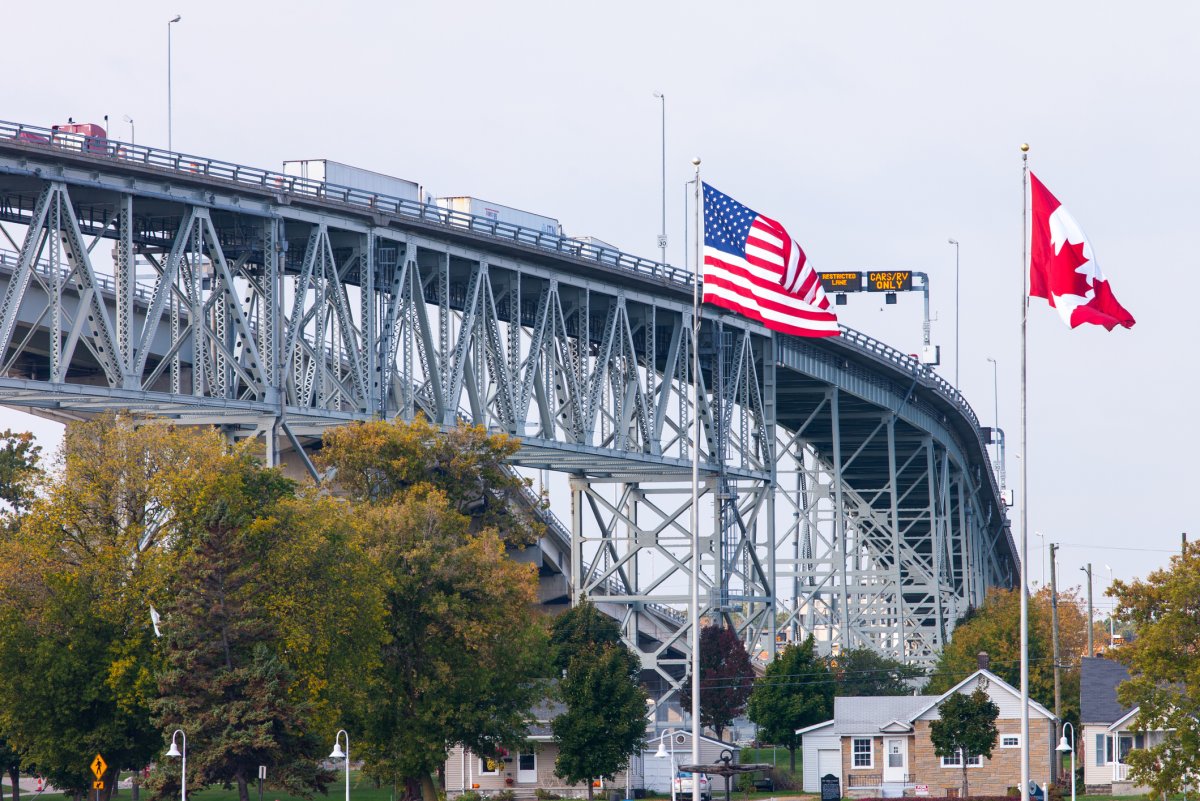Sarnia Mayor Mike Bradley is among 15 Canadian mayors calling for the federal government to scrap all COVID-19 testing requirements for land border travellers who are double- or triple-vaccinated.

In an open letter addressed to Prime Minister Justin Trudeau, the border city mayors, including Niagara Falls Mayor Jim Diodati and Windsor Mayor Drew Dilkens, ask for an end to the testing guidelines, which they say are out of line with public health mandates and unjustified by current science.
The letter, also cc’d to Deputy Prime Minister Chrystia Freeland, public safety minister Marco Mendocino, and health minister Jean-Yves Duclos, cites the “heavy price” pandemic travel measures have had on border communities, including through the lengthy closure of the land border to all but essential travel.
The letter comes days after the federal government lifted its pre-arrival PCR test requirements for double- and triple-vaccinated travellers.
As of Monday, a negative rapid antigen or PCR test result will be accepted to meet entry requirements, provided the tests are administered by a lab or health care entity. Only those randomly selected for a PCR test at the border will have to take one, but will not have to quarantine while waiting for results.
Unvaccinated children under 12 are also free of mandatory self-isolation upon return to the country. Travellers are required to continue to submit mandatory information on ArriveCAN, including proof of vaccination.
- B.C. to ban drug use in all public places in major overhaul of decriminalization
- 3 women diagnosed with HIV after ‘vampire facials’ at unlicensed U.S. spa
- Solar eclipse eye damage: More than 160 cases reported in Ontario, Quebec
- ‘Super lice’ are becoming more resistant to chemical shampoos. What to use instead
Despite the loosening guidelines, Bradley says the mayors believe that those who have been double- or triple-vaccinated should not have to be tested to cross the border.
“We’re at the point as mayors of border cities, who, obviously, our job is to protect our public health, have reached the point that we’re saying this is not necessary,” said Bradley on Thursday.
Ontario dropped its COVID-19 vaccine passport system on Tuesday, and lifted remaining capacity limits for indoor spaces. Businesses can implement their own vaccination mandates if they wish.
“We believe that with vaccination and with the other issues that have happened where restrictions have been dropped, it simply doesn’t make any sense … What is the need and what is the benefit? And the answer to that is there is no benefit,” Bradley said of the border testing.
“The example we use, we saw 20,000 people watch the Maple Leafs lose last night. The only thing they had to wear was masks. There was no other protections in place for the public. That should apply to the border also.”

The open letter from the mayors calls on the government to end testing at the land border immediately, rather than wait to review the requirements at the end of the month — a timeline the mayors say the government has relayed to border industries.
“The group, which is totally non-partisan, has understood that the government had to take certain actions to protect the public health. And we agreed with that, as painful as it was for our individual communities, particularly in the tourism sector,” Bradley said.
“But now we’ve reached the point (of) saying that we need to disengage from the testing, let the border work the way it should and get on with it now. Don’t wait till the end of March.”
European countries such as the United Kingdom, Denmark and Switzerland have dropped border testing requirements while continuing to surveil for variants in the community via local testing and genome sequencing.
Canada logged a record 96.8 million international arrivals — non-residents as well as returning Canadians — in 2019, according to Statistics Canada.
The number dropped to 25.9 million in 2020 and 18.8 million in 2021, though it began to recover later in the year, just before the Omicron variant took its toll.
— with files from Irelyne Lavery of Global News and Christopher Reynolds of The Canadian Press








Comments